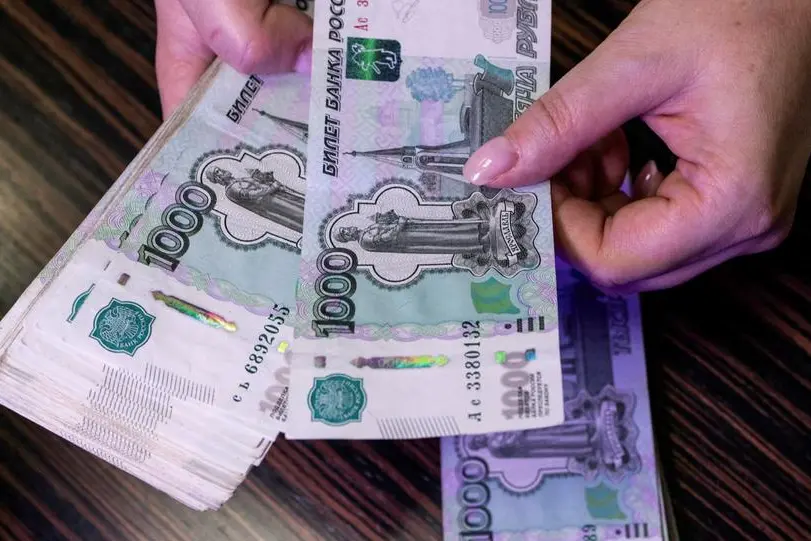PHOTO
The Russian rouble weakened further against the dollar on Friday, according to LSEG and Moscow stock exchange data, with some traders saying that Ukraine's surprise attack in Russia's Kursk region was one of the factors behind the fall.
Trading in major currencies shifted to the over-the-counter (OTC) market, obscuring pricing data, after Western sanctions on the Moscow Exchange and its clearing agent, the National Clearing Centre, were introduced on July 12.
By 1130 GMT the rouble was 2.7% down at 89.00 against the dollar, according to LSEG data, which can serve as a guide for OTC rates. One-day rouble-dollar futures, which still trade on the Moscow Exchange, were down 0.8% at 86.44.
However, some traders said that in the actual OTC market, dominated by sanctioned Russian banking giants such as Sberbank , the rouble's moves were more moderate, with Sberbank bidding at 85.00 to the dollar.
Russian forces are battling Ukrainian troops for a fourth day after they smashed through the border in the Kursk region in one of the biggest Ukrainian attacks on Russia since the war began in February 2022.
"Perhaps this is a justified reason, for example, for foreign banks remaining in Russia to buy currency," said a dealer at a large Russian bank. The rouble has been on a weakening streak since the attack began.
The rouble was expected to receive support this week from increased net daily sales of foreign currency by the central bank and the finance ministry that went into effect on Aug. 7.
"Kursk shattered market expectations that interventions would be sufficient to support the rouble," the trader added.
Another trader, who spoke on condition of anonymity, said that some importing companies were also hoarding foreign currency as the rates became attractive after weakening in July.
According to an analysis of the OTC market, the rouble was down just 0.3% to 11.91 against the yuan, which has become the most traded foreign currency in Moscow.
It was down 1.9% at 96.53 against the euro.
Brent crude oil, a global benchmark for Russia's main export, was up 0.6% at $79.63 a barrel and was heading for a weekly gain of more than 3% as U.S. jobs data calmed demand concerns.
(Reporting by Gleb Bryanski; Editing by Mark Potter)





















